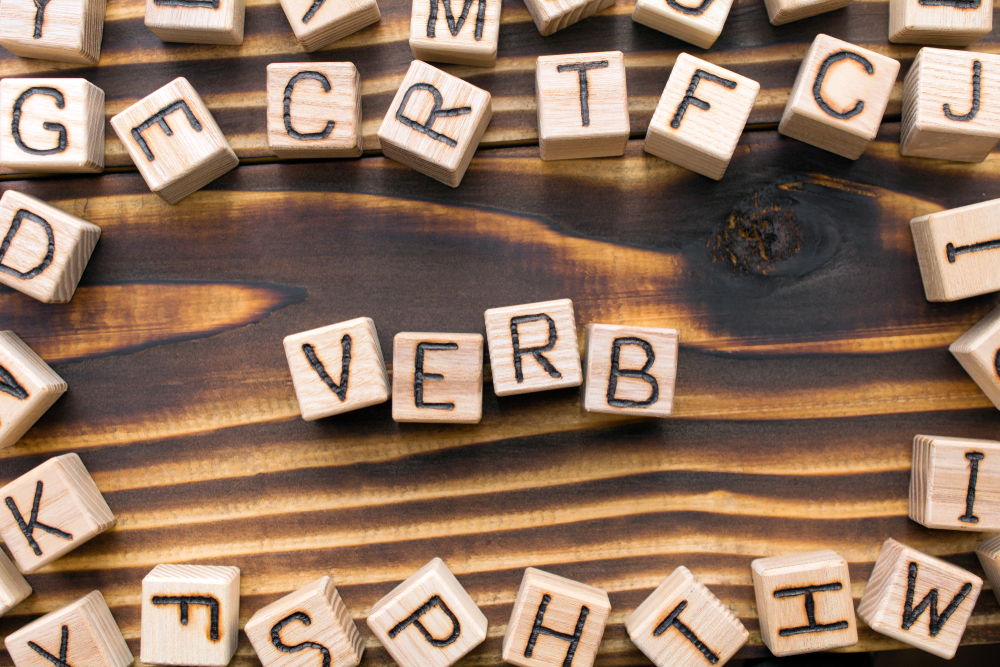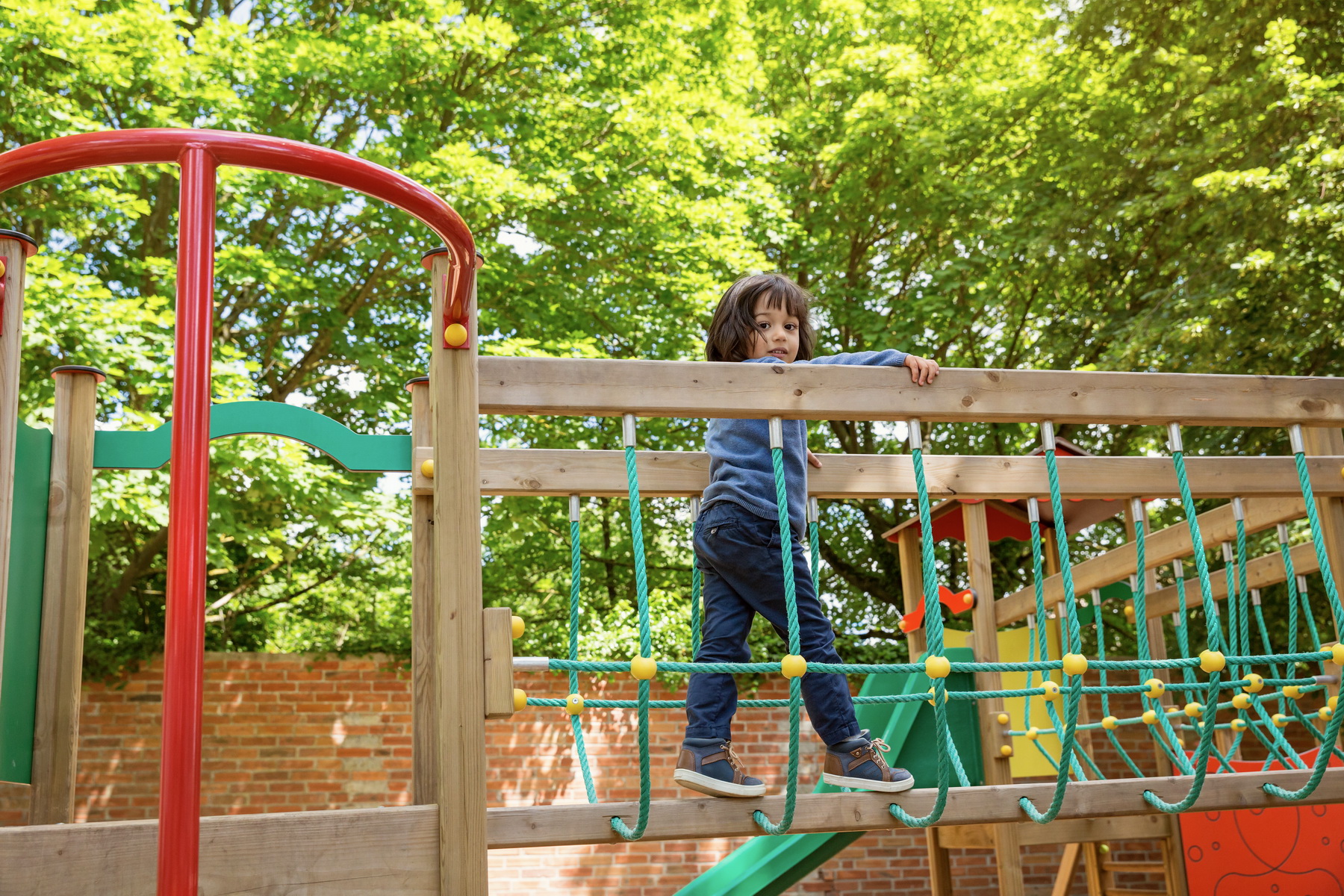Reading readiness Normal Worksheets for 4-Year-Olds
5 filtered results
-
From - To
Explore our engaging Reading Readiness worksheets tailored for 4-year-olds! Designed to nurture foundational literacy skills, these printable activities support young learners as they embark on their reading journey. Our worksheets encompass a variety of fun, hands-on exercises that enhance letter recognition, phonemic awareness, and vocabulary concepts. Each worksheet is age-appropriate and promotes critical thinking through interactive tasks. Help your child develop confidence and enthusiasm for reading with our thoughtfully crafted resources, perfect for home or classroom use. Discover a wealth of learning tools that make literacy an exciting adventure—empowering your child to build essential skills for future success!
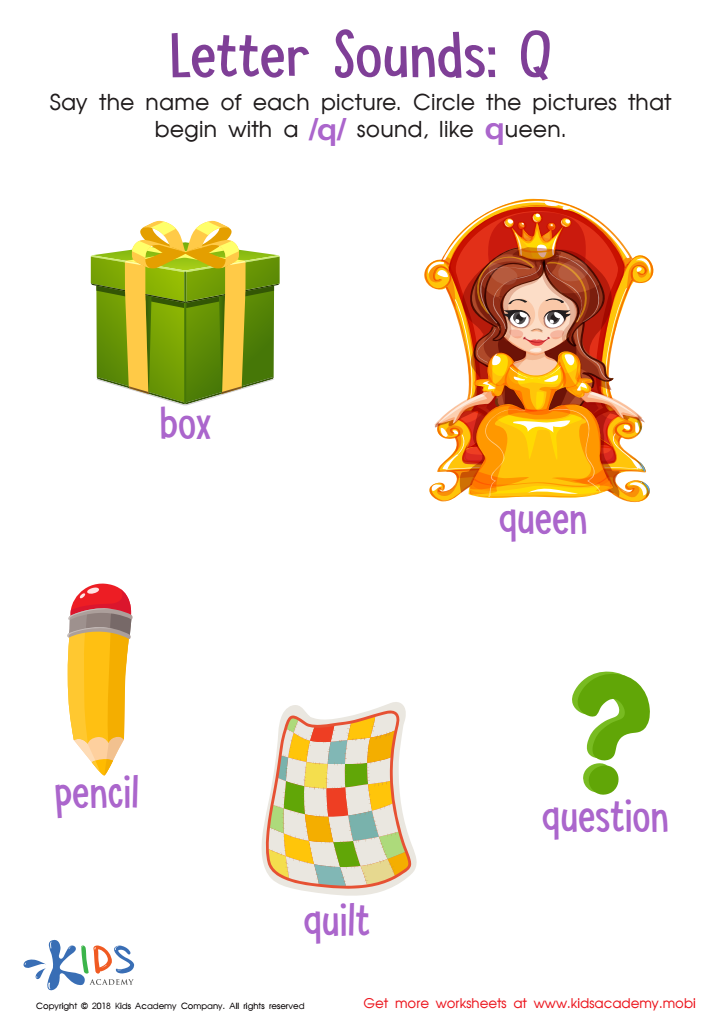

Letter Q Sounds Worksheet
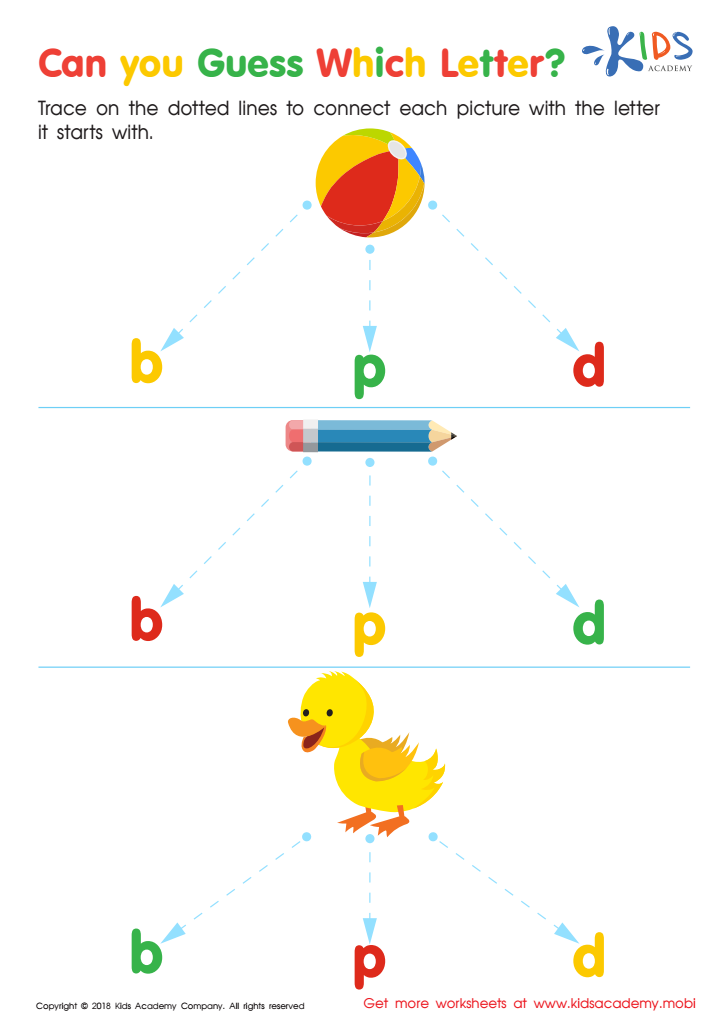

Can you Guess Which Letter? Worksheet


Phonological Awareness: Assessment 1 Worksheet
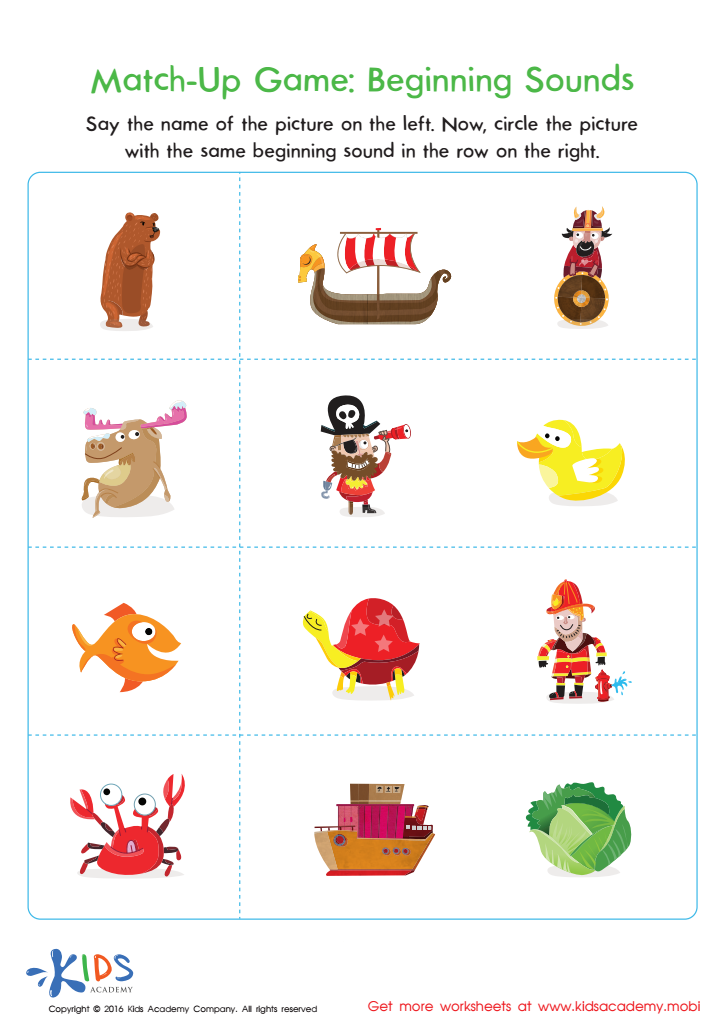

Match–Up Game: Beginning Sounds Worksheet
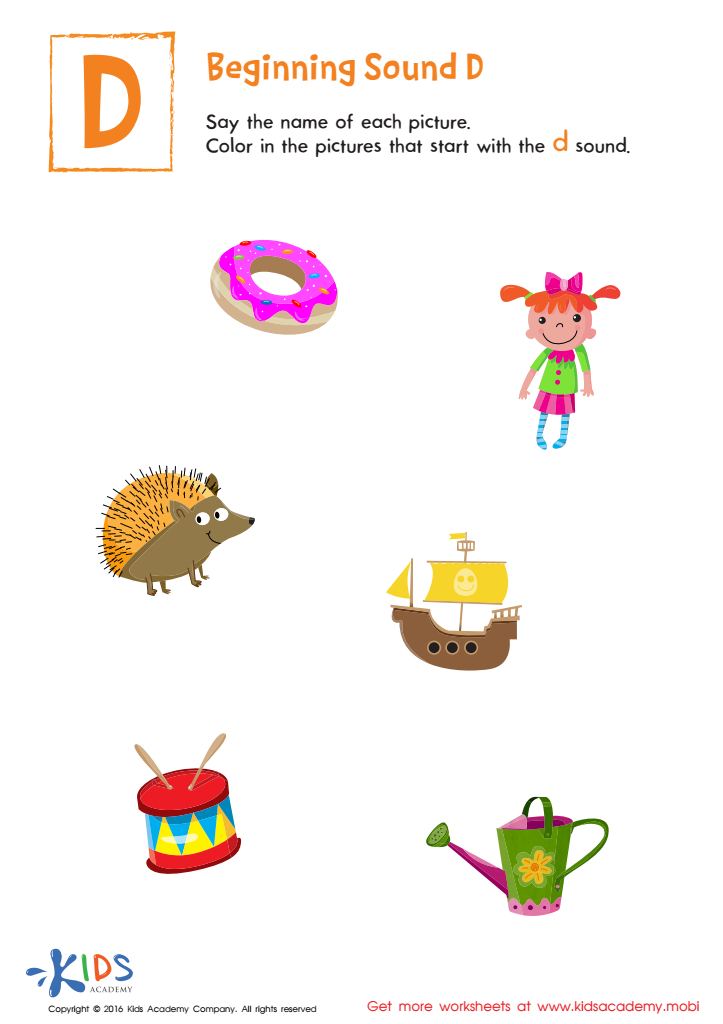

Beginning Sound D Worksheet
Reading readiness for 4-year-olds is crucial for several reasons that impact a child's educational journey and overall development. Firstly, this stage lays the foundation for learning to read and write, which are essential skills in both academics and daily life. Being reading-ready involves not just recognizing letters and sounds but also understanding how stories work, which enhances language development and comprehension.
Furthermore, early literacy skills correlate with later academic success. When children are provided with opportunities to engage with books and storytelling, they develop vocabulary and critical thinking skills. This not only aids in reading but also fosters their ability to express themselves and relate to others.
Moreover, reading readiness promotes confidence and motivation to learn. Children who are comfortable with literacy skills are more likely to participate actively in classroom discussions, leading to stronger social interactions and emotional growth.
Lastly, today's educators emphasize the importance of parental involvement in cultivating a child's reading readiness. When parents read at home, pose questions about stories, and foster a love for books, they create a supportive learning environment. Therefore, for teachers and parents, investing in reading readiness is vital for a child's successful academic and personal development.
 Assign to My Students
Assign to My Students





